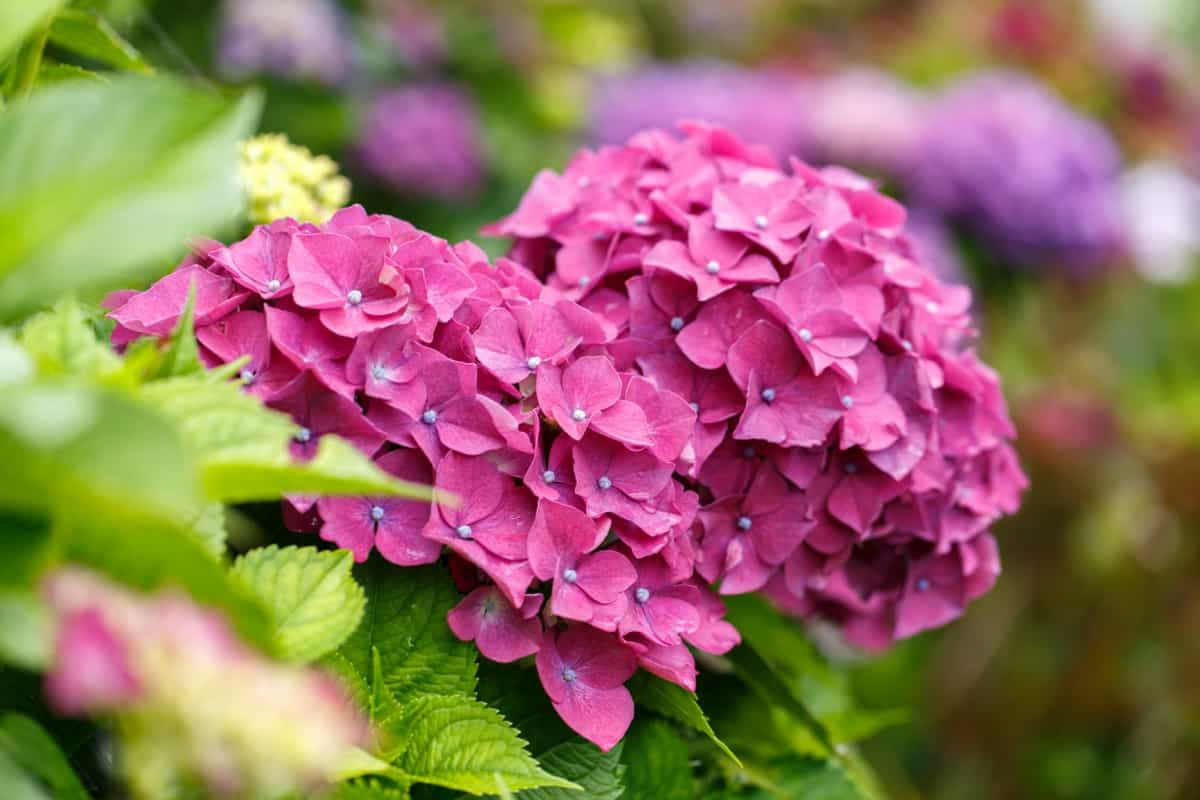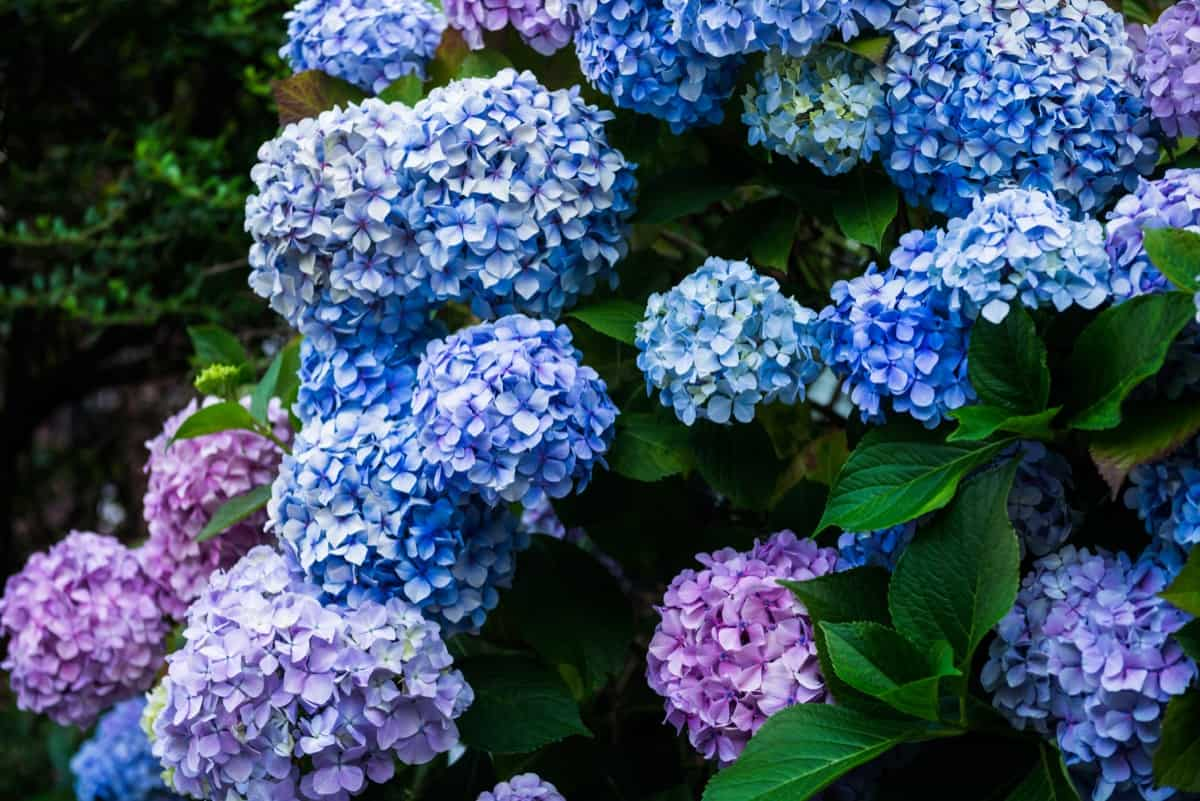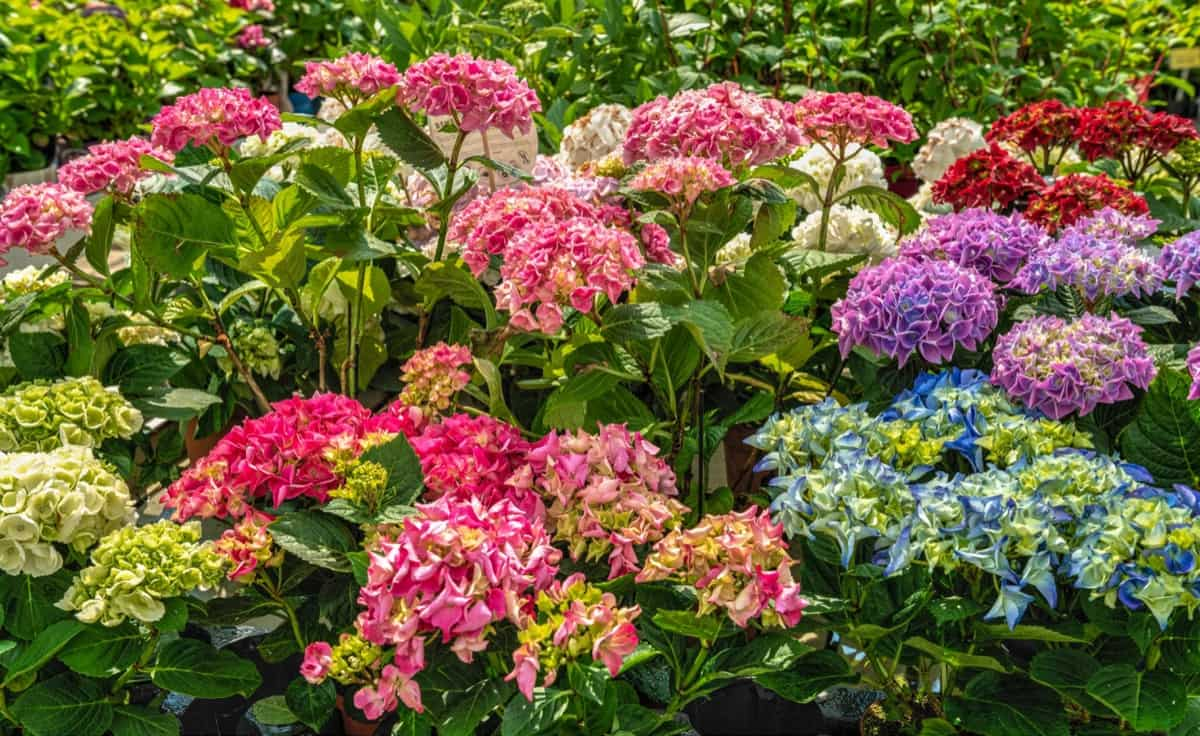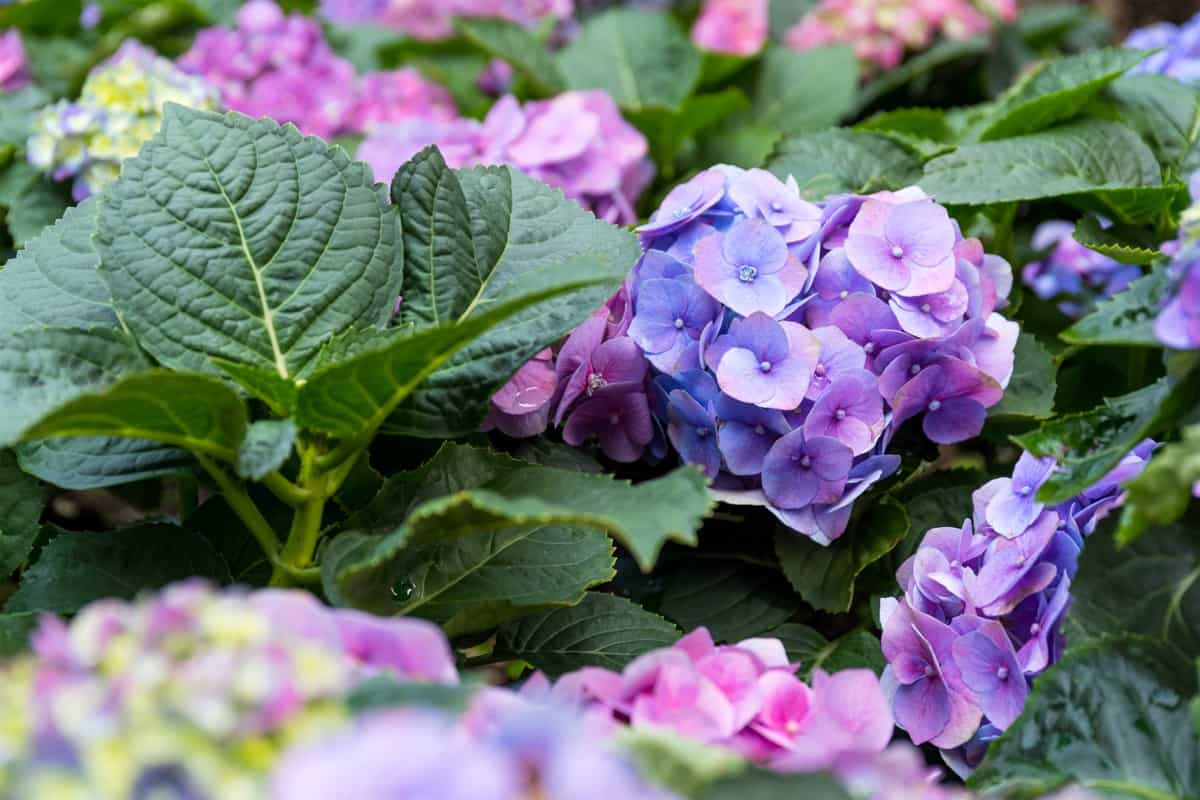Hydrangeas are a popular choice among gardeners due to their stunning blooms and vibrant colors. However, there is often confusion about whether hydrangeas are annuals or perennials. In this document, we will explore the difference between annual and perennial hydrangeas and provide insights into the lifespan of hydrangea plants.

Are Hydrangeas Annuals or Perennials
Difference Between Annual and Perennial Hydrangeas
Annual and perennial hydrangeas are two types of plants that differ in their life cycle and growth patterns. Annual hydrangeas complete their life cycle within a year, from seed germination to flowering and seed production. They typically grow quickly and provide colorful blooms during the summer months. However, they do not survive the winter and need to be replanted each year.
On the other hand, perennial hydrangeas are long-lived plants that survive for multiple years. They have a dormant period during winter and resume growth in spring. Perennial hydrangeas often have larger and more established root systems, allowing them to produce more abundant and vibrant flowers. They provide ongoing beauty and require less maintenance compared to annual hydrangeas.
Hydrangea Lifecycle: Annual or Perennial?
Hydrangeas are a popular choice for gardeners due to their beautiful blooms. But have you ever wondered if they are annual or perennial plants? The answer is both. Hydrangeas can be either annual or perennial, depending on the specific variety. Some varieties, such as the Oakleaf hydrangea, are perennial, meaning they come back year after year.
Other varieties, like the Annabelle hydrangea, are considered herbaceous perennials, meaning they die back each winter and then regrow in the spring. So, when choosing hydrangeas for your garden, it’s important to consider the specific variety and its lifecycle.
Understanding the Lifespan of Hydrangea Plants
Understanding the lifespan of hydrangea plants is essential for successful cultivation. Hydrangeas typically live for 20 to 50 years, depending on various factors. The specific species and variety of hydrangea can influence their longevity. For instance, smooth hydrangeas (Hydrangea arborescens) generally have a lifespan of 20 to 30 years, while bigleaf hydrangeas (Hydrangea macrophylla) can live for 30 to 50 years.
In case you missed it: Bone Meal for Hydrangeas: Benefits, When and How to Apply?

Environmental conditions, such as soil quality, sunlight exposure, and temperature, are also crucial in determining hydrangeas’ lifespan. Proper care, including regular watering, pruning, and fertilizing, can extend their lifespan and ensure their health and beauty for many years.
Do Hydrangeas Need to Be Replanted Every Year?
They are known for their ability to thrive in the same location for many years. However, there are some factors to consider. Hydrangeas prefer well-draining soil and require regular watering. It is important to provide them with adequate sunlight and protection from harsh winds. Pruning is also essential to maintain their shape and promote healthy growth. While they do not require replanting annually, periodic soil amendment and fertilization can help maintain their vigor. With proper care, hydrangeas can be a long-lasting and beautiful addition to any garden.
Perennial Varieties of Hydrangeas
- Annabelle: Known for its large, round white flowers, Annabelle hydrangeas are a popular garden choice due to their ability and hardiness to grow in various climates.
- Endless Summer: This variety of hydrangea blooms on old and new wood, resulting in an extended flowering season. Its vibrant blue or pink flowers make it a stunning addition to any landscape.
- Limelight: With its unique lime-green flowers that gradually turn pink as they mature, Limelight hydrangea adds a touch of elegance to gardens. It also boasts strong stems that prevent drooping.
- Forever Pink: As the name suggests, Forever Pink hydrangea produces beautiful pink flowers throughout the season. Its compact size makes it best for smaller gardens.
- Oakleaf: This hydrangea variety is known for its large, oak-shaped leaves that turn vibrant shades of red, orange, and purple in the fall. Its white cone-shaped flowers add further visual interest.
Annual Hydrangea Species and Their Characteristics
- Snow Queen: Snow Queen hydrangea showcases clusters of white flowers that bloom in summer and gradually fade to a soft pink shade. Its dark green foliage provides a lovely contrast.
- Tardiva: Tardiva hydrangea is a late-blooming variety that produces white flowers in cone-shaped clusters. Its long-lasting blooms make it popular for adding interest to late-summer gardens.
- Nikko Blue: Nikko Blue hydrangea is a classic variety known for its large, rounded clusters of blue flowers. It is a reliable bloomer and can be easily grown in most garden settings.
- Cityline: Cityline hydrangea is a compact variety that offers an abundance of colorful flowers. It comes in various shades, including pink, blue, and white, making it a versatile choice for any garden.
Growing Hydrangeas: Annual Vs. Perennial Considerations
When deciding between annual and perennial hydrangeas, several factors must be considered. One important factor is the climate of your region. Annual hydrangeas are more suitable for areas with shorter growing seasons and colder winters, as they do not need to survive through the winter months. Perennial hydrangeas, on the other hand, are better suited for regions with milder climates and longer growing seasons.
In case you missed it: How to Treat Brown Spots on Hydrangea Plant Leaves Naturally: Causes, Fix With Effective Home Remedies

Another consideration is the desired lifespan of the plants. Annual hydrangeas may be the best choice if you are looking for a pop of color and beauty for a single growing season. However, if you prefer long-term plants that will come back year after year, perennial hydrangeas are the way to go. It is also essential to consider the time and effort you are willing to invest in your garden.
Annual hydrangeas are generally easier to grow and require less maintenance. They can be a great option for beginners or those who want a hassle-free gardening experience. Perennial hydrangeas, on the other hand, may require more care and attention, especially during their establishment period. However, once they are established, they can be relatively low-maintenance.
Are Hydrangeas Perennials in Zone 9
Hydrangeas are indeed perennials in Zone 9. Perennials are plants that live for more than two years. In Zone 9, where the climate is generally warm, hydrangeas can survive through the winter and regrow yearly. They are loved for their beautiful and vibrant blooms, making them popular among gardeners in this zone.
Longevity of Hydrangea Plants: Annual or Perennial Nature
When it comes to their longevity, they can be either annual or else perennial, depending on the specific variety. Annual hydrangea plants complete their life cycle within one year, meaning they grow, bloom, produce seeds, and die within that timeframe. On the other hand, perennial hydrangea plants have a longer lifespan, often surviving for several years or even decades.
These plants continue to grow and bloom yearly with proper care and maintenance. Whether you prefer the temporary beauty of annual hydrangeas or the enduring presence of perennials, both types can add charm and elegance to any garden.
Choosing Between Annual and Perennial Hydrangeas for Your Garden
When selecting hydrangeas for your garden, one decision you’ll need to make is whether to choose annual or perennial varieties. As the name suggests, annual hydrangeas only last for one season and must be replanted each year. Perennial hydrangeas, on the other hand, come back year after year, providing long-lasting beauty to your garden.
In case you missed it: Summer Hydrangea Care: Tips for Keeping Your Blooms Beautiful

While annual hydrangeas can offer vibrant blooms in a shorter timeframe, perennial hydrangeas are more sustainable and require less maintenance. Consider your gardening goals and long-term plans when choosing between annual and perennial hydrangeas.
Conclusion
In conclusion, hydrangeas can be both annuals and perennials. Regardless of their classification, hydrangeas are known for their stunning blooms and can be a delightful addition to any garden. You can enjoy these captivating plants for years to come by providing the right care and maintenance.
- Feed Your Flock for Less: Top 10 Tips to Save on Chicken Feed
- Ultimate Guide to Ossabaw Island Hog: Breeding, Raising, Diet, and Care
- Hatching Answers: The Top 10 Reasons Your Chickens Aren’t Laying Eggs
- Eggs and Economics: Breaking Down the Cost of Raising Backyard Chickens
- Defend Your Greens: Proven Methods to Keep Iguanas Out of Your Garden
- Ultimate Guide to Cinnamon Queen Chicken: A Comprehensive Guide for Beginners
- Ultimate Guide to California Tan Chicken: Breeding, Raising, Diet, Egg-Production and Care
- Ultimate Guide to Marsh Daisy Chicken: Breeding, Raising, Diet, and Care
- 10 Types of Chicken Farming Businesses You Can Start for Profits